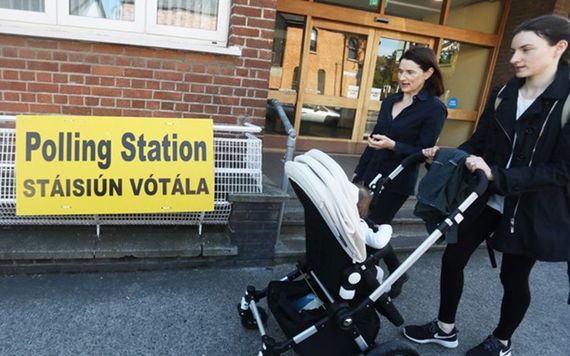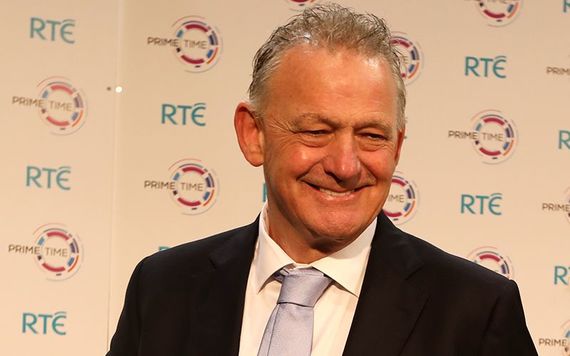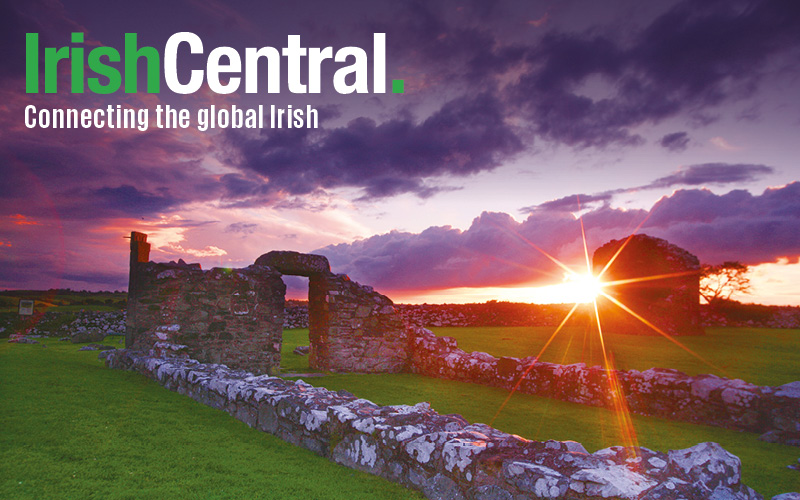A number of more conservative political parties have emerged in Ireland in recent years but will any of them succeed?
Ireland is often held up as a model of modern liberal democracy. After more than a century of Church authority and rigid adherence to Catholic social doctrine, the Irish blitzed through the 1990s with the legalization of divorce and the removal of some restrictions on abortion.
In 2015, it became the first nation to legalize same-sex marriage by popular vote, and then three years later completed the full legalization of abortion—again, by popular vote.
Liberalization happened practically all at once, and on the surface, it seemed that after decades—centuries, even—of social, economic, and political backwardness, the Irish overcompensated by flinging themselves headlong into modernity.
Successful referenda were never overly controversial because, in the end, they usually passed with a healthy two-thirds majority. The results were thus taken to be the general will of the population, and the remaining third of dissenters were simply written off and forgotten about.
Read more: Historian wonders why Sean Hannity and conservative “loudmouths” are all Irish
But for that sizable subsection of the population, these changes have been unwanted, disruptive, and evidence of a new society totally out of its control.
It is impossible to determine exactly who voted ‘no’ in each case, but because voting patterns generally paralleled each other, one can safely assume that those who voted against one referendum probably did so in multiple. That means a solid third of the Irish population—conservative Ireland—has not only been dissatisfied with the change taking place but has been largely pushed to the margins by mainstream political society.
Both votes passed with two-thirds of the vote. Image: RollingNews.ie. 
In a properly functioning parliamentary system, a purposeful, well-organized, and outspoken third of the population should have a meaningful impact on the direction of the country.
Keep in mind that Irish Labour only notched more than 20 percent of the popular vote in a single general election, yet it has had a seminal influence on Irish politics throughout its history.
Part of the reason for the marginalization of conservative Ireland is the irregular structure of the political system itself. Ireland does not operate within the traditional left-right paradigm characteristic of most other Western democracies.
Instead, the political divide there is rooted in decades-old Civil War animosities, swamping traditional politics and creating a system in which the policies of the two largest parties are virtually indistinguishable from one another (whether liberal or conservative).
For most of the last century, this underlying problem was partly remedied by the influence of the Church. All parties had to curry favor with His Holiness the Pope to maintain power, naturally shifting the system’s political center to the right. And although conservatism predominated, it was always held in check by the marginal yet persistent presence of trade unions, socialist parties, and republican groups sustained over decades by the country’s pervasive underdevelopment and mass poverty.
Read more: US politics drowning in looney liberals and clueless conservatives
The revelation of the Church’s sex abuse scandals and the leadership’s underwhelming response has caused its influence in Ireland to recede. Although it still maintains a substantial degree of authority through its ownership of schools and hospitals, it has mostly retreated from the political sphere.
The removal of that colossus has opened a huge void on the political right that none of the major parties have moved to fill, leaving conservative Ireland almost completely unrepresented at both local and national level.
It didn’t take long for new political actors to stake their claims.
Renua Ireland led the charge in 2015. It campaigned on a platform opposing further European integration, while casually adding its distaste for abortion and immigration, too. The party didn’t make it very far, but it did cause a stir at the most recent general election.
The National Party followed thereafter. It was inspired by Donald Trump’s successful presidential bid in 2016 and advocated many of the same populist aims associated with the US president.
An Irexit Freedom Party emerged in late 2018, but it was largely overshadowed by the surprise performance of populist Peter Casey in the presidential election. Casey’s campaign earned him considerable scorn for his hostile remarks towards minority groups, though it was a style of politics that appealed to many voters who awarded him 23.1 percent of the vote—no small feat against the towering candidacy of incumbent Michael D. Higgins.
Former Presidential hopeful Peter Casey. Image: RollingNews.ie. 
These are noteworthy developments, to be sure, but the right might have finally found its star in Peadar Tóibín. Tóibín was previously the Sinn Féin TD for Meath West but was suspended last year for defying the party whip to vote against the abortion referendum. He eventually decided to resign from Sinn Féin altogether and found a new party dedicated to traditional republican principles but with a decidedly pro-life slant.
Aontú is different from the aforementioned right-wingers because it combines top-down leadership with grassroots activism. Tóibín himself has been in the public spotlight for almost a decade. He was first elected to Dáil Éireann in 2011 and served for two years as the chairman of the Committee on Arts, Heritage, Regional, Rural and Gaeltacht Affairs.
Broadly speaking, he is a well-known public figure with a penchant for civic engagement—an invaluable asset that gives the party instant credibility. Tóibín was joined almost immediately by nine elected local councilors and has since garnered such high-profile personalities as Anne and Francis Brolly.
At ground level, Aontú is quietly channeling public discontent into a mass movement. The national media has mostly overlooked its growth, but local outlets report that over the last three months, the party has held 40 public meetings with over 5,000 attendees, sparked the formation of 65 cumainn (locally-organized party branches), and perhaps most importantly, it is preparing to stand 60 candidates for local elections in May.
The local elections are Aontú’s first opportunity to stand before the electorate. It is a crucial test for the young party because it will help gauge its level of support across Ireland, undoubtedly shaping how it approaches its next big test, the general election.
It is difficult to predict any final outcome, but it is clear that there is an increasingly conscious conservative subsection of the population eager to influence the political landscape and curb the further liberalization of Ireland. With upwards of a third of the population potentially receptive to its program, Aontú might well form the basis for a ‘new right’ in Ireland.
*Dan Haverty is an independent observer on Ireland's political landscape and not associated with the parties mentioned in this article.
This article was submitted to the IrishCentral contributors network by a member of the global Irish community. To become an IrishCentral contributor click here.




Comments